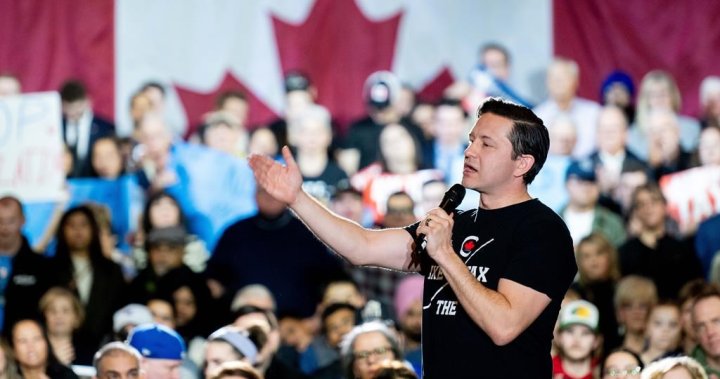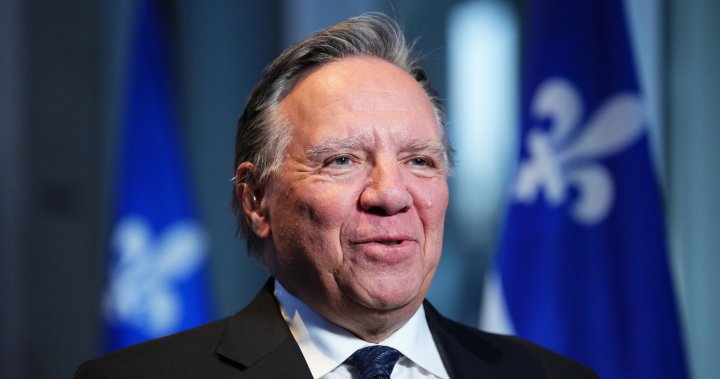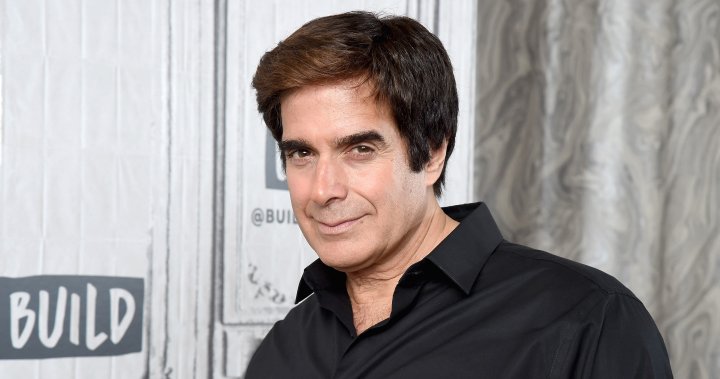Thirty years ago, a mantra for the U.S. Democrats ran “it’s the economy, stupid.”
Three decades later, that same energy has been captured by a Canadian politician that nobody would mistake for Bill Clinton.
The Millennial and Gen Y Canadians who will vote for Conservative Leader Pierre Poilievre – potentially for the first time, or their first time voting for the Conservatives – are angry. They’re angry about the cost of living. They’re angry about housing. And they’re angry that their quality of life is likely to be worse than their Boomer and Gen X parents.
And in Poilievre they’ve found an outlet.
March 10 numbers from Abacus Data put the Conservatives ahead among 18 to 29-year-olds, with 36 per cent support, 27 per cent for the NDP and just 19 per cent for Trudeau’s Liberals. Abacus’ numbers for the 30 to 44-year-old set – the elder Millennials and young Gen X’ers – are even more stark, with the Conservatives enjoying 43 per cent support to the Liberals’ 23 per cent.
The trendline among younger voters mirrors the overall gravitation to the Conservatives in national polling. But anecdotally, you can see it at Poilievre’s rallies. The crowds skew younger than the people who turned out for events under previous Conservative leaders Stephen Harper, Andrew Scheer and Erin O’Toole.
Global News reached out to more than 60 Conservative riding associations across the country, asking to meet first-time Conservative voters who were drawn to Poilievre’s message. The intent was to understand what is attracting young voters to the Conservative Party, not traditionally a home for young Canadians, but in the year and a half since Poilievre’s leadership victory has become a vehicle for the rejection of the status quo.
Based on those conversations, it seems the appeal is not so much that these voters put a lot of faith in Poilievre’s specific policy proposals. It’s that they see him as an avatar for their dejection, and their rejection of the establishment.
A new home for the ‘youth vote’?
Ahead of the 2021 election Philippe J. Fournier, the polling analyst behind 338Canda, wrote that younger voters just beginning their careers tend to lean left-of-centre.
At the time, according to polling company Léger, 36 per cent of Canadians aged 18 to 34 supported the New Democrats, with 25 per cent supporting the governing Liberals. The Conservative Party was in third place, with 22 per cent support.
“In all cases,” Fournier wrote in Macleans Magazine, referring to multiple polls, “the Conservatives were a distant third among young voters.”
Poilievre appears to have flipped that script.
“For my generation, it’s like 30-years to save up for a starter home. And that’s not something I don’t think I would be too happy about, so I would love to see that change,” said Mackenna Wright, a 20-year old University of Ottawa student who joined the party in 2021 just before Poilievre announced his leadership ambitions.

Wright’s home riding is Sarnia-Lambton, and she’s involved with the Conservative riding association.
“Groceries are a crazy, crazy increase (in the cost-of-living). I would say that in the last year, I’ve probably spent an extra hundred or two hundred dollars per month … If he gets rid of the carbon tax, I think the cost of living will go down for gas and groceries especially.”
And if it doesn’t?
“The policy that he has, doesn’t necessarily matter as much as how he portrays himself to the public,” Wright said.
Breaking news from Canada and around the world
sent to your email, as it happens.
“He’s working for the everyday Canadian, rather than the elite. And I feel like a lot of leaders in the past have glazed over the middle-class, lower-class people, so I think a lot of people are feeling seen by him.”
When asked about the specific policies that attracted them to Poilievre’s party, the members who spoke to Global News talked more about the general thrust of their leader’s politics, rather than his specific legislative proposals.
Former U.S. Democratic strategist James Carville famously reduced political outreach to “it’s the economy, stupid.” With Poilievre’s youth movement, the phrase might be adapted to “it’s the vibes.”
Trent Brownlee lives in Stonewall, Manitoba. A teacher, Browlee helped organize for Poilievre during the 2022 leadership contest.

“Pierre showed a willingness to address issues that most Conservatives in the past have ignored and done so in a really dynamic and engaging way,” Brownlee told Global News. “Vibes have their place. I’ve always been someone who cares about the ‘why’ … For me, knowing that Pierre understands the problems that we’re facing and feels the same way about them, it’s impactful.”
“I don’t want him to bore Canadians to death, I want him to say he knows the issue, say he has a plan and show me based of the points that he lays out that he’s got a good outline and the people he’s planning to put in charge, that he knows he’s got the right people,” Brownlee added.
It’s not unusual for partisans to trust their team to lay out the broad strokes for the public, and then handle the details later.
But there also appears to be an attraction to Poilievre’s sharp-elbowed approach to politics, the notion that the Conservative leader, to quote the movie Network, is “mad as hell and isn’t going to take it anymore.” That formless anger underneath Canadian politics in 2024 is looking for an outlet, and ultimately a leader.
Whether that anger is based in reality or any specific actions by the current Liberal government is up for debate. But it’s clearly there, and the Liberals have shown no ability to manage it – let alone harness it to their advantage.

A recent report from Oxford University’s Wellbeing Research Centre found that “happiness” declined in Canada in 2021 and 2023, compared to in 2006 and 2010. But the decline was most pronounced among the young.
“For the United States, Canada, Australia and New Zealand, happiness has decreased in all age groups, but especially for the young, so much so that the young are now, in 2021-2023, the least happy age group,” the report read.
“This is a big change from 2006-2010, when the young were happier than those in the midlife groups, and about as happy as those aged 60 and over. For the young, the happiness drop was about three-quarters of a point, greater for females than males.”
The “happiness” metric is primarily based on three data points: people’s self-reported “life evaluations” on a 0-10 scale, positive emotions like laughter, enjoyment and interest, and negative emotions like worry, sadness and anger.
Poilievre, at least for the time being, appears to have captured that energy.
Conservatism’s appeal to younger generations
There appears to be a moment happening for right-wing parties’ appeal to younger voters in democratic countries right now.
In Portugal, where the Chega party – Portuguese for “Enough” – looks to play kingmaker in the country’s parliament. Reuters reported that it dominated the campaign, pointing to “a crippling housing crisis, low wages, sagging healthcare and corruption,” issues that would be familiar to any Canadian conservative partisan.
In the Dutch 2023 election, the far-right Party for Freedom led by anti-Islam agitator Geert Wilders won the most seats.
In Germany, the far-right Alternative for Germany (AfD) finished third in state elections in Bavaria last year, but the Washington Post reported it saw big gains with voters under 25.
In France, 49 per cent of voters aged 25-34 voted for Marine Le Pen in the presidential election of 2023 – compared to 41 per cent of the general population.

Ironically, the country that Canada imports so much of its politics from – the United States of America – appears to buck the trend. According to the Centre for Information and Research on Civic Engagement at Tuft’s University “the national youth vote choice for the U.S. House of Representatives (in 2022) was 63 per cent for Democrats, 35 per cent for Republicans.”
Despite that notable exception, right-wing parties appear to have captured the attention of younger people disaffected and disappointed with the status quo.
“The whole Freedom Convoy was the time I saw a big split” within the Conservative movement said Anthony Yacub, who started volunteering for the Conservatives in 2013 at the age of 14.
“Conservatives from the east coast were not too receptive to the Freedom Convoy, like the Quebec and Maritime people, and the few suburban Ontario people. And then all the Western Ontario people, including Pierre … started to embrace the trucker convoy, and saying you know we shouldn’t be picking winners and losers, and he started taking more of a principled position and started speaking in a very simplistic, economic way.”
Yacub, who is seeking the party’s nomination in the Ontario riding of Pickering-Uxbridge, said that younger voters are attracted to the general thrust of Poilievre’s message and will trust him to sort out the details after winning power.
“When he says for example ‘we’re going to axe the (carbon) tax,’ people are taking it on trust that he’s going to axe the CBC, he’s going to axe the carbon tax … But we don’t really know right now, because they don’t have a platform, what specific costs he is going to cut,” Yacub said.
It’s an open question whether the Conservatives’ apparent surge in young Canadians’ support will translate to votes at the ballot box when the next election is called.
In 2021, just 47 per cent of voters aged 18 to 24 showed up to vote, compared to 75 per cent of voters aged 65 to 74, according to Elections Canada data.
The decline in youth participation in elections mirrors the general population. Elections Canada reported that before the 1990s, voter turnout was generally higher than 70 per cent of eligible Canadians. That hit a low of 59 per cent in the 2008 election, which gave Stephen Harper a minority mandate.
One notable exception was the 2015 election, when Prime Minister Justin Trudeau’s Liberals won a majority government. After nine years of Harper’s administration, 2015 was a “change” election. It also saw more than half a million more young Canadians vote than in 2011.
If current polling is any indication, Canada may be heading for another “change” election whenever the plug is pulled on the current Parliament.
Even if the Conservatives’ newfound youth support doesn’t show up on election day, Poilievre and the party enjoy a commanding lead in national polling.
It may not ultimately matter to their success or failure on election day. But those young Canadians who found a home in Poilievre’s Conservative movement will still be angry. And that energy has the potential to provide a generational change within the party.
Editor’s note: This story has been updated to reflect the fact that Justin Trudeau’s Liberals won a majority government in 2015, not a minority government.





